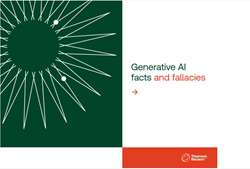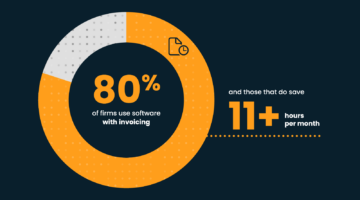 I don’t know what it is about winter that brings on discussions about alternative fee arrangements. Perhaps it’s because both law firms and law departments are just getting over annual negotiation season and are temporarily ready for another option. Whatever the reason, I twice recently found myself at events where the topic was discussed in great detail: first during an “unpanel” titled “How would a more perfect legal market work?” at Inspire.Legal in New York, and then a week later at the inaugural Legal Innovation Breakfast in Chicago. (Both events were more than worthwhile, by the way).
I don’t know what it is about winter that brings on discussions about alternative fee arrangements. Perhaps it’s because both law firms and law departments are just getting over annual negotiation season and are temporarily ready for another option. Whatever the reason, I twice recently found myself at events where the topic was discussed in great detail: first during an “unpanel” titled “How would a more perfect legal market work?” at Inspire.Legal in New York, and then a week later at the inaugural Legal Innovation Breakfast in Chicago. (Both events were more than worthwhile, by the way).
Both sessions focused on alternative fee arrangements, and both had representatives from both law firms and law departments. And at both, we heard the typical talking points from both sides. These conversations almost always go like this:
Law firm: We really want to help, but you have to tell us what you want.

Generative AI Facts And Fallacies
Four insights and misunderstandings to help demystify GenAI for legal professionals.
Law department: It’s not our job to price your services.
There were some law firm pricing professionals in the room and there is some hope that they will provide the solution. Whether this group has enough power at their firms to really affect change — and whether there’s enough talent to go around — are big questions.
The in-house people had a more specific complaint that they voiced loudly at each event: RFPs are too long and too complex. No one begrudged the use of RFPs themselves; all were in agreement that they are a useful and necessary tool for evaluating potential counsel. But the in-house counsel in the room were asking specifically why these were so long, why there were so many redundant questions, and why there is a lack of clarity about what the firm is actually trying to figure out.
The second point is a big one. In just about every RFP I’ve ever seen, there are multiple questions that can be answered the same way. Here’s an example from CLOC’s Model RFP:

Billables Are Not The Same As Cash Flow. Here’s Why That’s Important.
Findings from the MyCase 2025 Legal Industry Report.
Question 2: Please provide a detailed example of how you have taken a proactive approach to develop a strategic or collaborative relationship with a client, describing why you believe it worked well and the benefits you provided.
Question 6: We are interested in partnerships with law firms with innovative compensation models that reward collaboration and leadership of highly successful collaborative teams. Please tell us what, if anything, your firm has done in this area as well as how the firm maintains matter profitability. Describe how the relationship partner will be compensated and/or incentivized with respect to the management of the relationship.
Question 7: Describe how your firm ensures cost efficiency while maintaining outstanding client service. Include reference to your staffing leverage philosophy, i.e., how you best use staff of differing experience levels as well as third-party providers or local counsel.
I cannot imagine the number of hours wasted figuring out how to answer both questions, with endless discussions about “If we mention success fees in question 2, then how do we answer question 6? If we were proactive in using a third-party provider, is that a response for question 2 or question 7?”
The law firm representatives at both events also pointed out this is a lot to try to get a single piece of work. Which got me wondering: Isn’t that what panels are for? Aren’t they the firms you’ve already decided are better than the rest?
Why aren’t buyers reserving complicated, difficult RFPs for building or rebuilding their panels, and then using simple ones — which focus solely on experience with that particular type of work and how the project would be priced — for parsing out the work within the panels? Law firms are more than willing to be made to jump through hoops to get on the panel, but once they are on the panel it should be easy for them to earn work from the client.
Isn’t that how it’s supposed to work? I asked Tom Sager, now a partner at Ballard Spahr but famously the DuPont general counsel behind the DuPont Legal Model, which was one of the first to rely on panel counsel. “The panel model worked amazingly well for DuPont and its dedicated network of law firms and suppliers. While it was not perfect, it was far superior than the RFP process in identifying external providers who shared the same vision and values with its client and drove a unique culture of collaboration, transparency and accountability long before the terms were in vogue.”
Here’s another question: why are fewer law departments relying on panels in the first place? According to the 10th Anniversary Law Department Operations Survey Report, only 67 percent of law departments use panels — down from 81 percent in our first survey a decade ago. Departments that spend a lot of their time reviewing RFPs — and whose firms spend a lot of their time completing them — should make sure they have a panel program in place and that they are getting full value from it.
Download the 2018 Law Department Operations Survey Now!
 Brad Blickstein is principal of the Blickstein Group, which has two missions: to help legal service providers better understand and serve their clients and to provide information about law departments and legal operations. He is the publisher of the Annual Law Department Operations Survey, which for 11 years has provided the most comprehensive data and analysis on the Legal Operations function.
Brad Blickstein is principal of the Blickstein Group, which has two missions: to help legal service providers better understand and serve their clients and to provide information about law departments and legal operations. He is the publisher of the Annual Law Department Operations Survey, which for 11 years has provided the most comprehensive data and analysis on the Legal Operations function.